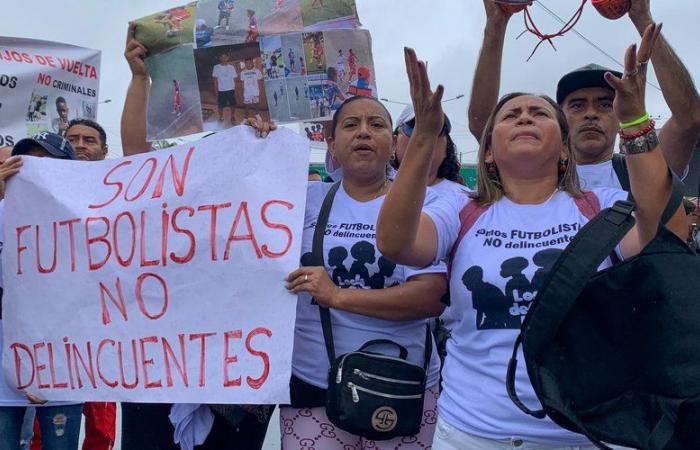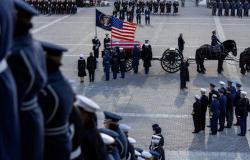Ecuadorian justice on Tuesday ordered the provisional detention of 16 soldiers suspected of the forced disappearance of four teenagers, whose charred bodies were found near a military base, in a case that shocks the country and worries international organizations.
“The results of the forensic expertise confirm that the four bodies found in Taura correspond to the three teenagers and a child who disappeared after a military operation on December 8,” the prosecution indicated on X during the day, putting an end to the uncertainty over the fate of the boys, aged 11 to 15 and missing for more than three weeks.
Saul Arboleda, Steven Medina and brothers Josué and Ismael Arroyo had gone to play football when they were arrested by soldiers on December 8 in the Las Malvinas sector, south of the port of Guayaquil, a city affected by the violence of drug trafficking and where the army is deployed. The military claimed that shortly after arresting them on suspicion of theft, they released the children unharmed. They never returned home. On December 24, four burned bodies were found in a mangrove area near the Ecuadorian air force base in the town of Taura, on the outskirts of Guayaquil.
An Ecuadorian criminal court on Tuesday ordered the preventive detention of the sixteen soldiers who are under investigation for the alleged “forced disappearance” of the minors. They had previously been placed under arrest in a barracks by decision of the military authorities. The crime of enforced disappearance carries a penalty of up to 26 years in prison, according to Ecuador's penal code.
The sixteen soldiers will “enter the normal system of deprivation of liberty, which the barracks are not”, indicated Billy Navarrete, executive director of the Committee for the Defense of Human Rights of Guayaquil, who accompanies the parents of the four adolescents. The “aggravating factor of death” must be taken into account, he added.
“Noboa assassin”
This affair has aroused great emotion in Ecuador, where NGOs denounce serious human rights violations under the government of Daniel Noboa. Agencies of the UN and the Organization of American States have expressed concern after the disappearance of the four minors. Dozens of family members, neighbors and human rights activists gathered in the morning in front of the Guayaquil courthouse. “Noboa assassin”, could we read on one of the signs brandished by the demonstrators.
The Ecuadorian Minister of Defense promised Monday “full transparency” in this matter. Summoned before a parliamentary committee on childhood, Gian Carlo Loffredo sent a message to the teenagers' parents, pledging to “hide nothing or anyone”. On December 23, President Daniel Noboa said he had “ordered the intensification of all actions necessary to locate the four children and to find all those responsible so that they can answer for their actions before the courts and the country.”
Long considered a safe haven between Colombia and Peru, the main cocaine exporting countries, Ecuador has seen violence explode in recent years, with rival gangs linked to Mexican and Colombian cartels fighting to take control of the country . Daniel Noboa, who is seeking re-election in February, declared a state of emergency in January to confront, according to him, the “internal armed conflict” opened by gangs, deploying soldiers in the streets. Since then, organizations such as Human Rights Watch (HRW) have denounced serious human rights violations.






